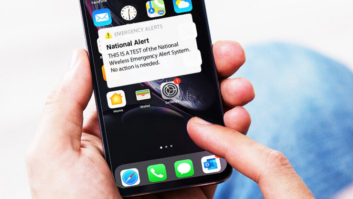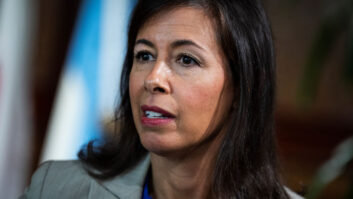The author is membership program director of the National Federation of Community Broadcasters. NFCB commentaries are featured regularly at www.radioworld.com.
Diversity, equity and inclusion discussions are again in the spotlight for noncommercial radio, largely because more cases of abuse are coming to light. These incidents, and the persistent puzzle of how they went on so long, push for leaders and aspiring leaders of media organizations to get much more real about course correction and change.
The latest revelations have been troubling. Regarded as a top-tier public media organization by many, WAMU has reportedly avoided addressing a series of serious problems for years. The same was alleged at WNYC, WBUR and elsewhere. However, as Andrew Ramsammy remarked during a July panel I moderated on equity in community and public media, the days of leadership being unaccountable are done. Many are being ousted or are racing to the door, knowing their failures will follow them into their next jobs.
[Read: Community Broadcaster: Devices for Democracy]
Yet the departure of problematic staff and leaders does not fully address the big question: how do we fail to act when we see something, and how can we change work culture to prioritize reporting and accountability? It is a provocative subject station managers and boards of directors will have to find ways to compassionately answer.
In her book “Willful Blindness,” Margaret Heffernan points out that a mix of factors come into play when we each witness actions that we believe are contrary to what we expect of and believe from trusted figures and organizations. Sometimes, the author notes, we find it is easier for our identities and ideals to feel that we do not know there is a bad situation afoot. At other points, people make excuses for scandals out of our love for individuals, ideas, institutions and notions of progress. Heffernan calls this humans’ skill for diffusing and displacing responsibility. Still elsewhere, we convince ourselves or the futility of protest, the self-interests we risk in speaking up, and the ease in quietly accepting circumstances as they are. In addition, our preference for the familiar informs some willingness to look the other way on issues like diversity.

Most tellingly, we all assume we’d act differently if we saw injustice, experienced abuse, or heard of incidents; research, however, indicates virtually no one responds as she or he expects. From marital infidelity to church scandals to the Enron collapse, the author remarks that people in almost every case knew of profound lapses and said nothing. In official cases, incidents may have been reported and concerns also raised, yet ignored by official channels.
Such experiences are as old as humankind. How can community and public media create a stronger, more culturecentric environment?
It is critical that management be accountable. It is of further importance to constantly educate volunteers, staff, board and managers. Bystanders — those who witness problems and do nothing — and those who explain away or stay blissfully ignorant of corruption are not uncommon. The challenge may be helping people appreciate that uncomfortable matters are, in fact, a danger to everyone and the ideals we hold dear. And, undoubtedly, a stronger accountability and training ethos must be built for boards, managers and, especially, human resources and volunteer directors at any size station.







